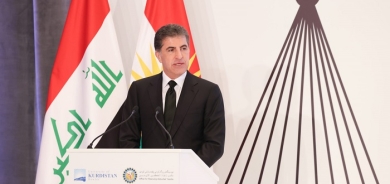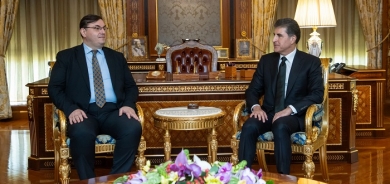Paris attack probe turns to Belgium’s ‘Islamist pit stop’ of Molenbeek

In the wake of Friday’s mass attacks in Paris, Belgian authorities are asking what makes the narrow, terraced streets of Molenbeek different from a thousand similar neighbourhoods across Europe.
Three themes emerge as Molenbeek is again in a spotlight of Islamist violence, home not just to militants among Belgium’s own half a million Muslims but, it seems, for French radicals seeking a convenient, discreet base to lie low, plan and arm before striking their homeland across the border.
The first is the difficulties faced by security services amid tensions between the country’s French- and Dutch-speaking halves. Then there is the country’s long history as a hub for fundamentalist preachers from the Gulf, and finally, its thriving black market in automatic rifles of the kind used in Paris.
Two of the attackers who killed more than 130 people, 270 km (170 miles) away in Paris on Friday night were Frenchmen residing in Belgium. Belgian police raided Molenbeek addresses and seven people have been arrested in Belgium over the Paris attacks.
A manhunt is underway for one of the key suspects, Salah Abdeslam, 26, who was born in Brussels. Police say he is very dangerous and have warned people not to intervene if they see him.
Police had him in their grasp early Saturday, when they stopped a car carrying three men near the Belgian border. By then, hours had passed since authorities identified Abdeslam as the person who rented a Volkswagen Polo that carried hostage takers to the Paris concert hall where scores were murdered.
Three French police officials and a top French security official confirmed that officers let Abdeslam go after checking his ID. They spoke on condition of anonymity, lacking authorisation to publicly disclose such details.
A judicial official said police had identified two of the suicide bombers as French nationals living in Belgium: 20-year-old Bilal Hadfi, who detonated himself outside the Stade de France; and 31-year-old Brahim Abdeslam, the brother of fugitive Salah Abdeslam, who blew himself up on the Boulevard Voltaire.
Police lack 'grip'
“Almost every time, there is a link to Molenbeek,” said 39-year-old centrist Prime Minister Charles Michel, whose year-old coalition is battling radical recruiters who have tempted more than 350 Belgians to fight in Syria - relative to Belgium’s 11 million population, easily the biggest contingent from Europe.
But “preventive measures” of the past few months were not enough, Michel said, describing Molenbeek as a “gigantic problem” and saying: “There has to be more of a crackdown.”
His interior minister, Jan Jambon, vowed to “cleanse” the district personally. Conservatives blamed lax oversight on left-wing predecessors.
Differences between the Dutch-speaking region of Flanders and Belgium’s French speaking south have translated into a profusion of layers of government and policing, creating problems for intelligence and security services.
“Belgium is a federal state and that’s always an advantage for terrorists,” said Edwin Bakker, professor at the Centre for Terrorism and Counterterrorism at the University of Leiden in the Netherlands. “Having several layers of government hampers the flow of information between investigators.”
Contrasting Belgium with its centralised Dutch neighbour, he added: “It’s much more difficult for groups to disappear from the radar just by moving 10 kilometres.”
Given the difficulty of gathering intelligence in places like Molenbeek, a borough of 90,000 where some neighbourhoods were up to 80 percent Muslim, any gaps in the information chain were problematic, Bakker said: “In parts of Brussels there are areas on which the police have little grip, very segregated areas that don’t feel they’re a part of the Belgian state.
“In such a case it’s very difficult to get feedback from the community. That means while the neighbours may have seen something going on, they’re not passing it to the police. Then it becomes very tough for intelligence agencies as only relying on them and not local police is not sufficient.”
Political complication is also blamed for slowing the passing of new laws, for example to rein in the preaching of hate in mosques or recruitment for and travel to the Syrian war.
While some of Molenbeek’s old factories - it once enjoyed the industrious nickname “Petit Manchester” - have made it a smart address for bohemian loft living, areas tumbling out from the ship canal are some of the poorest in northwest Europe.
The 25 percent jobless rate, rising to 37 percent among the young, is significantly higher than other parts of Brussels, also home to a thriving, cosmopolitan middle class drawn by the European Union institutions on the other side of the city.
Fundamentalist pedigree
George Dallemagne, a centre-right opposition member of the federal parliament, traces some problems back to the 1970s when resource-poor, heavily industrial Belgium sought favour with Saudi Arabia by providing mosques for Gulf-trained preachers.
These brought with them fundamentalist teachings then alien to most of Belgium’s Moroccan immigrants.
Pointing at Molenbeek, Dallemagne said: “The very strong influence of Salafists ... is one of the particularities that puts Belgium at the centre of terrorism in Europe today.”
Molenbeek is not unique in Belgium. The highest profile radical group taken on by the state has been sharia4belgium, a social media savvy organisation whose leader and dozens of members were convicted early this year in the Flemish city of Antwerp of recruiting dozens to fight in Syria.
But, as Prime Minister Michel said, a Molenbeek connection keeps coming up in cases of Islamist attacks in Europe going back at least to the 2004 train bombings in Madrid, where one of those jailed for planning them was a Moroccan from the borough.
In August 2014, a Frenchman of Algerian origin was living there when he gunned down four people at Brussels’ Jewish Museum.
French police suspect some of the guns used in January terrorist attacks in Paris and on the foiled Thalys train attack in August came were acquired via Molenbeek.
Tons of guns
“Molenbeek is a pit stop for radicals and criminals of all sorts,” said Benyaich, of the Itinera Institute. “It’s a place where you can disappear.”
Investigators say another main attraction is weaponry.
Some of that, said Nils Duquet, a researcher at the Flemish Peace Institute, dates back to before 2006 when Belgium, whose state-owned FN Herstal sidearm manufacturer supplied many of the world’s armies, also had a relaxed approach to gun ownership.
“With the right connections, it’s quite easy to find illegal weapons in Belgium,” Duquet said.
“Criminals used to come to buy weapons legally. And they kept coming because they found the right networks and people here to get weapons, even after 2006.”
European Union interior ministers will hold an emergency meeting in Brussels on Friday at France’s request and will deal yet again with longstanding concerns about traffic in firearms.
“In Belgium, there’s a problem with data management. Nobody knows how many illegal weapons there are in Belgium,” said Duquet. “The reality is we have no idea.”
(FRANCE 24 with REUTERS, AP)















